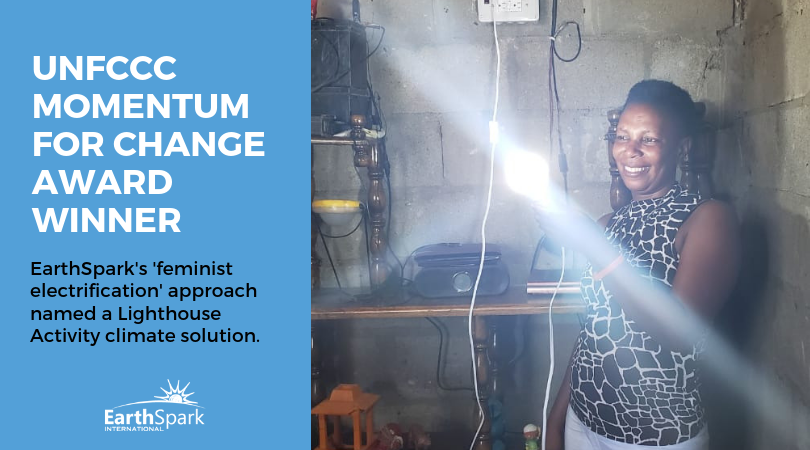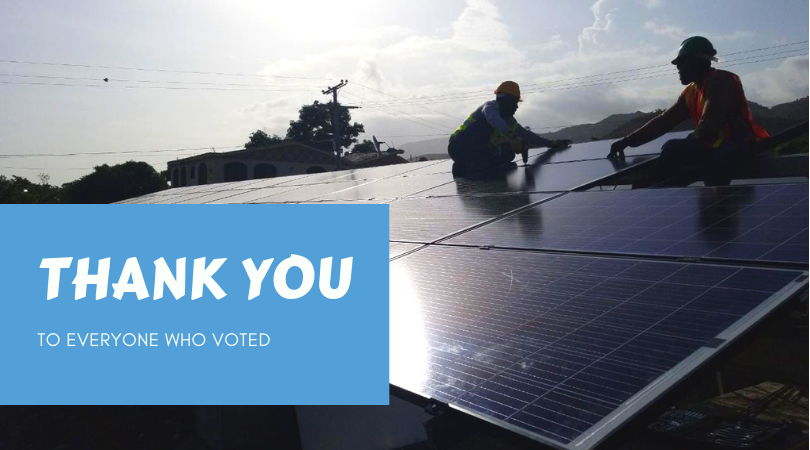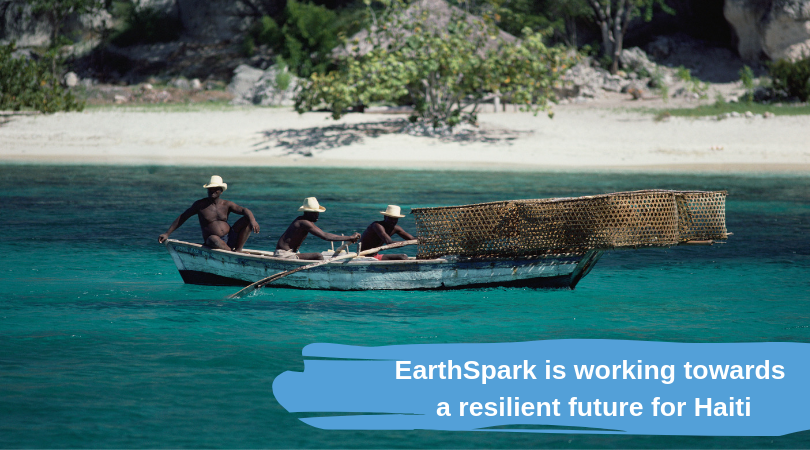|
A version of this blog post first appeared in EarthSpark's newsletter. If you would like to receive EarthSpark news directly, please join our mailing list! This week the Intergovernmental Panel on Climate Change (IPCC) released a report outlining global climate damage scenarios. Also this week, two American economists won the Nobel Prize for their work on climate change, innovation, and sustainable growth. The upshot is twofold: The bad news: We are already feeling the effects of climate damage. At the rate of current emissions, we are on track to blow through our ‘carbon budget’ in as few as 12 years. The good news: The future will be amazing! (if we have enabling policy and people actively engaged in building the future we want.) Keeping climate change within the bounds of what many perceive as the maximum 'safe' limit would require "rapid, far-reaching and unprecedented changes in all aspects of society," the IPCC wrote. They continued, "With clear benefits to people and natural ecosystems, limiting global warming...could go hand in hand with ensuring a more sustainable and equitable society." Ending poverty and solving climate change are largely the same work. Our urgent problems are also our unprecedented opportunities. With its long shorelines, dependence on agriculture, poor infrastructure, and location in ‘hurricane alley’, Haiti has been ranked the 6th most vulnerable country in the world to climate change. Sadly, natural events are reminding us that those in United States and around the world are also increasingly vulnerable. Our hearts go out to those recently in the path of Hurricanes Michael and Florence. With the most recent hurricanes in mind, it’s easy to feel downhearted, but core to both the IPCC report and the Nobel-winning work is what one of the Laureates, Dr. Paul Romer, calls "Conditional Optimism." Romer writes: There are two very different types of optimism. Complacent optimism is the feeling of a child waiting for presents. Conditional optimism is the feeling of a child who is thinking about building a treehouse. “If I get some wood and nails and persuade some other kids to help do the work, we can end up with something really cool.” We love this notion of conditional optimism, the sense that we can participate in the building of something really great. In addressing climate change and extreme poverty, solutions won’t magically arrive, but we can solve this – with the tools we already have – if we roll up our sleeves and get to work. “I think people are grossly underestimating how rapidly we'll start to de-carbonize once we put our minds to it.” Working with communities in rural Haiti to envision and build transformative clean energy infrastructure from scratch, we feel the joy and the hard work of conditional optimism every single day. You are part of this journey with us, and we couldn’t be more grateful. Please donate $25 now to help us build our next grids in Haiti. One final note on optimism and action: as the US mid-term elections approach, we encourage those in the US to get involved and ask candidates about climate change leadership. Policy and prosperity are closely linked, and governments’ failure to build effective climate policies risks counter-balancing a lot of progress. In actions and advocacy, now more than ever, we each have a powerful role to play in shaping our collective future. Ready to build some treehouses? In grateful, gritty optimism, Allison and the EarthSpark team  (Image: Ms. Rosanne Jean-Jacques, a long-time grid ambassador, turns on electricity in her own home for the first time.) Earlier this month during Climate Week in New York City, Executive Secretary of the UNFCCC, Patricia Espinosa, named EarthSpark International a winner of the United Nations Momentum for Change Climate Action Award for our 'feminist electrification' approach to microgrid development. Fifteen projects were chosen from a pool of over 560 applications from all over the world ranging from businesses and governments to communities and organizations.“These activities shine a light on scalable climate action around the world,” said Patricia Espinosa, Executive Secretary of UN Climate Change. “They are proof that climate action isn’t only possible, it’s innovative, it’s exciting and it makes a difference.” This week a film crew from the UN came to Les Anglais to cover the story. We can't wait to share their footage with you! Thank you to the 240 individuals who took the time to cast their vote for EarthSpark for the MIT Solve's popular vote award. We came in a solid second place, beaten out by a wonderful team working to restore shoreline habitats. Once again, we are honored to be surrounded by an entire community working on thoughtful, innovative solutions to resilient communities, climate change, and poverty. Thank you for your continuing support in making our work a reality. As you may be aware, parts of Haiti were hit with fatal earthquakes over the weekend. While Haiti's southern peninsula was lucky to escape unscathed, other regions weren't so lucky. We offer our thoughts and hopes for a better future to those who've suffered loss.
The devastating impact of natural disasters and extreme weather events are exacerbated by poor infrastructure. As more storms and more quakes are inevitable, we take solace in working with communities to help build resilience as we build power.
0 Comments
Your comment will be posted after it is approved.
Leave a Reply. |
EarthSpark supporters make our work possible. Thank you for considering a donation towards eliminating energy poverty in Haiti.
Read the full blog - click here!
|
EarthSpark International is a non-profit 501(c)3 organization.


